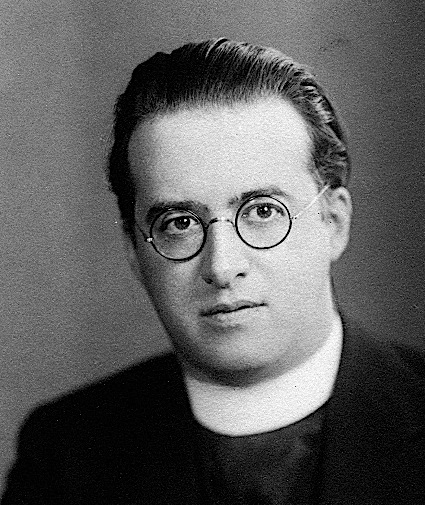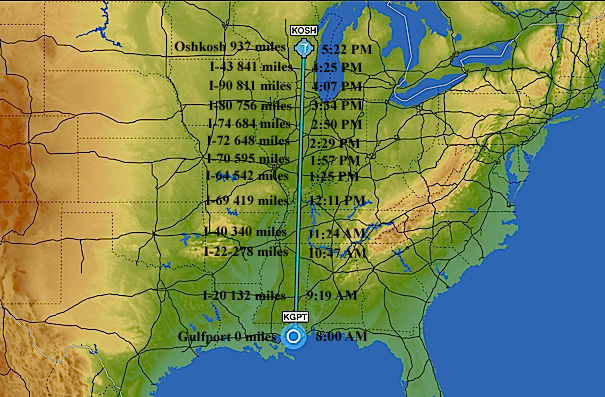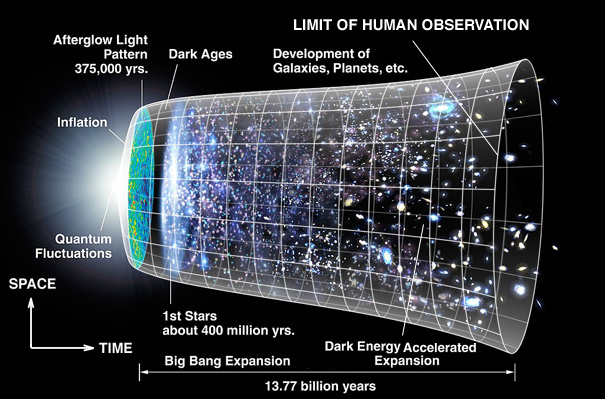What Did God Do Before Time?
 |
| Rev. Georges Lemaitre proposed that the universe expanded from an initial point, an event that has become known as the "Big Bang" |
|---|
 |
| Rev. Georges Lemaitre proposed that the universe expanded from an initial point, an event that has become known as the "Big Bang" |
|---|
"In the beginning, God created the heaven and the earth" is the first idea in the Holy Bible. There are two separate and distinct thoughts here; (1) God already existed, and (2) whenever "the beginning" was, He already did (or was doing) something.
The story goes on to explain, in a way understandable by unlettered itinerant goat-herders, how God created energy (Genesis 1:1-5), matter (Genesis 1:6-8), present day earth (Genesis 1:9-10), plants (Genesis 1:11-13), a way of measuring time (Genesis 1:14-19), aquatic animals and birds (Genesis 1:20-23) land animals (Genesis 1:24-25), and, finally, people (Genesis 1:26-27). The second chapter of Genesis is a second (and decidedly different) story about the origin of mankind.
I find it interesting, but not, I'll admit, particularly significant, that the concept of time and its measurement appears so early in Scripture, right after the creation of the plants. Creation is spread over a period of six days even before there was a way of measuring them. Of course, we are told in Psalm 90:4 that "a thousand years in thy sight are but as yesterday when it is past, and as a watch in the night," and II Peter 3:8 tells us that "one day is with the Lord as a thousand years, and a thousand years as one day." Apparently God and His vegetable kingdom don't need to measure time, but His animals (including us) do.
Food for thought, there!
Dr. Stephen Hawking's best selling book, A Brief History of Time is a pretty good primer about what we currently know about the origin and evolution of the universe. Chapter 2 explains that, unlike the way we humans naturally perceive it, the universe, including both space and time, is in a state of flux. Neither space nor time are distinct and absolute, they are fluctuating, interdependent attributes of the universe, called "spacetime" that depend upon the relationship between the observer and what he is observing. There is no evidence (and is not likely to be any) that spacetime did not have a beginning. Currently the date of this beginning is determined to be about 13,770,000,000 years ago, give or take. Before that, spacetime did not exist (at all)! "In the beginning," God created it!
The fact that we perceive and measure space and time differently is due to the requirements of our biology. It's important to our welfare that, even in the wild, we implicitly understand concepts like, "uncomfortably high," "over there," "really big," "teeny tiny," and so on. So we are intrinsically programmed to understand space. Even a small child is able to measure "this much" with fingers or outstretched hands. Once we learn how to use measuring instruments and their associated units, "half an inch or so" or "about forty miles," doesn't bother us at all!
Not so with time. We don't have a good time sense at all! That's why few of us carry tape measures around on our persons, but we do have wristwatches and clock apps on our smart phones. Our sense of the duration of an event is known to depend on a number of factors, from the state of our health to what is drawing our attention at the moment, "A watched pot never boils," and all that! My personal opinion is that we all usually perceive our whole lives as having essentially the same duration, and perceive any other duration as a portion of it. For example, a two year old can spend what he perceives as ten times as long as his 20 year old mother takes to do something while he is watching her do it. If it is attracting his attention (like a watched pot, for example), he can spend a lot "longer." If this is true, it is a powerful survival characteristic for hominids whose chief advantage against the wilderness is learning from observing their parents and events in their immediate environment. Unfortunately, I don't know how to measure this one way or the other (If anyone reading this has any good ideas on the subject, feel free to email me!)
Time is invisible and mysterious, seemingly flowing inexorably from future to the past, not even stopping at the present, much like water flowing around a cruising ocean liner. Like the water though, it's not time that's moving; it's us moving through it! Space is easy to comprehend; it is up, down; right, left; forward, backward depending on which way we are facing! It is north, south; east, west; above or below the surface if we are standing somewhere on earth! Even so, the same object, the moon, for example, can be east of somebody, west of somebody else, overhead, and even below ground from other people on earth at the same time, even if they all agree on which way is north, south, east, west, up and down. In fact, east and west (and up and down) can be in completely opposite directions, depending on where we are! We can use powerful telescopes to see billions of miles out into space, this way and that, from galactic north to galactic south and everywhere in between, but we can look only one way in time: backward, into the past! Contrary to intuition, if somebody on another planet is looking at us, he is seeing our past, too! And because time and space are actually aspects of spacetime, the farther we look out in space, the farther we look proportionately back in time. Yet, we use different units to measure them: inches and miles for space, seconds and hours for time.
We can get some idea of how an observer affects space and time by standing next to a railroad crossing when a train comes by. The horn sounds like "eeeeeeeeeeeeeyooooooooooooo" as it passes. Actually the sound from the horn is constant to the people on the train, but it is not moving with respect to them like it is to a person on the ground. On the other hand, the crossing bell sounds like "deeng, deeng, deeng, deeng, deeng, ding, dong, dong, dong, dong, dong" to the people on the train, even though an observer hears the same bell going "ding, ding, ding, ding, ding" as the train passes.
 |
| A trip through space or time is a trip through spacetime |
|---|
Another way to understand the equivalence of space and time, and how an Almighty observer might perceive it, is to take an airplane trip from Gulfport/Biloxi Regional Airport, KGPT, to Whitman Regional Airport, Oshkosh, Wisconsin, KOSH, in a small airplane. If you take off at 8:00 in the morning, and fly direct at exactly 100 statute miles per hour over the ground, you'll be flying through time as well as through space. You'll cross I-10 almost immediately, but later encounter I-20 at 9:19 AM, I-69 at 12:11 PM, I-43 at 4:25 PM and land in Oshkosh at 5:22 PM, as shown on the graphic. Other aircraft can safely cross your exact path and altitude as long as you aren't there at the same time. They can also avoid a collision by being in different places at the same time. In both cases, your paths in spacetime won't cross! If you fly back to Gulfport, of course, you will fly the opposite way through space, but the same way through time, from past to future, and arrive 9 hours and 22 minutes later (in the future), just like the previous flight.
Actually, both measurements in this example are artificial, because the actual correspondence between space and time is: one year equals about 5.878 trillion miles, a distance known as a light year. When you look at the moon, 239 thousand miles away, you're seeing it as it was 1.283 seconds ago. A round trip by a laser pulse like the one Sheldon and his friends on the Big Bang Theory bounced off the retroreflectors that the Apollo 11 astronauts put on the moon takes 2.566 seconds. The same laser pulse from KGPT to KOSH would arrive in a little better than five milliseconds.
Speaking of the Big Bang Theory, it was proposed by a Jesuit educated army veteran physicist (like me) and Catholic priest (not like me) Rev. Georges Lemaitre. He was the first to theorize that the observed recession of nearby galaxies can be explained by an expanding universe that had, at least, a definite beginning. The term "Big Bang" was intended as ridicule by contemporary cosmologists who considered the idea preposterous until it was observationally confirmed soon afterwards by American astronomer Edwin Hubble, after whom the famous telescope was named. Father Lemaitre would probably have recognized that God, who created spacetime, would have been able to see "everything, everywhere, all at once" throughout time. It's just as we can see the whole 9.37 hour airplane trip from KGPT to KOSH all at once on the map, even though it takes the airplane pilot nine and two thirds hours. And although our limited monkey brains find it difficult to imagine a beginning to time, which renders "what happened before the creation of the universe" completely meaningless, God, who is said to have created it "in the beginning," is not likely to be under any such limitation.
Indeed, if God is not subject to time, as created things are, the idea of His doing this and then that is also without meaning. If we believe, as I do, that God doesn't change, His creative activity is essentially ongoing. It's what He is always doing (all the time)!
This also leads to repudiation of the idea that God "forgives and forgets," as if an Almighty God, who is all knowing, could somehow change by ceasing to know something that actually took place and is still remembered by one or more of His creatures. It also resolves the argument of how He can foresee choices we freely make before we make them. For a being not subject to time, the entire history of the universe, from its observed beginning to its assumed end and everything that takes place in between, is laid out completely, like the map of the aerial trip to Oshkosh, however much of it we mortals can or cannot see. It seems to me that divine mercy, as well as that we show to others, is much more apparent if forgiveness for transgressions remains forever rather than disappears as if they had never been.
 |
| A diagram of creation as God sees it - all at once |
|---|
Armed with this understanding of the relation between space and time, we can imagine the universe as God probably sees it, both space and time, all at once. Everything that exists or has existed lies within the "net." What will exist isn't shown, because people who draw diagrams to put on the Internet can know only what is past, the same as everybody else. Nobody except God knows how to draw the part off to the right yet, because only He can see it! That doesn't mean it isn't there. There are lots of things that exist right now that we cannot possibly see, like spacetime itself! The Bible uses the example of the manifest, powerful, invisible wind 123 times!
Actually, it is the universe that's changing, as shown in the diagram, with expansion going from left to right. My Creationist friends find the idea of evolution unsettling, to say no more, but the fact is that everything (except God) is changing continuously. The Catechism of the Catholic Church, paragraph 310, says that "God freely willed to create a world 'in a state of journeying' towards its ultimate perfection." Maybe the Church is on to something!
In any case, we Catholics have a familiar prayer that reminds us of the unchanging, and indeed unchangeable, activity of God. "As it was in the beginning, is now, and ever shall be, world without end, amen." Maybe God sees what "is now," and even what to us "shall be" even though it's different from our own perspective, the same as it was "in the beginning."